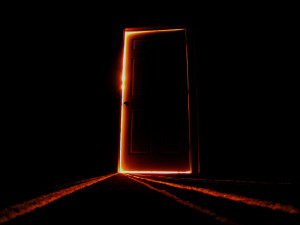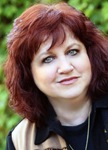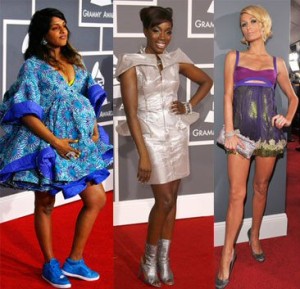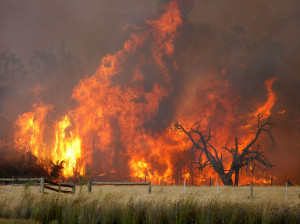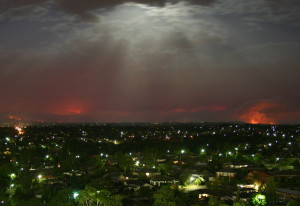We’re trying something a little different today–there’s no scheduled guest blogger today, so the Killers are holding "Sunday Writing School." We’ll open with a writing question, provide an opinionated answer, and then you can post more questions in the comments. As the day and night goes on we’ll all pick up questions from the comments and update the post with any more questions that come in, and add our (sure to be) very opinionated responses.
Question #1 (from ZenGirlWorld):
I’m working on my first mystery but I can’t settle on a point of view. Which one is best? I want to use first person but everything come out sounding like a bad Humphrey Bogart movie.
Kathryn: ZenGirl, you’re right in thinking that the selection of the right POV for your story is key.
I think it’s tempting to use first-person POV, but a drawback is that your character has to be in every scene, and that gets to be awkward. Plus, if you use a first-person POV, make sure that character doesn’t "know" anything in the story that he or she hasn’t seen, read, or been told. Sometimes authors have to do backflips to get around this constraint.
I’ll let some of the other Killers jump in while I’m thinking some more about this POV question…
Hi, ZenGirlWorld. Gilstrap here. I stay away from the first person for several reasons. First of all, as Kathryn says, storytelling can become a real pain when you have to develop every detail through the eyes of a single character. By telling the story through shifting points of view, I find it easier to build the tension because the reader can know things that the characters don’t. In first person, you simply don’t have that luxury. Most importantly for me, though, is the fact that first person narrative guarantees that the narrator lives. I don’t ever want a reader to feel comfortable about that.
Kathryn again: You’re talking about multiple third person POV, right John? There’s also limited third-person POV, which lets the POV be shown from both inside and outside the character’s head (I had to go back to my writing books to look that term up)!
Gilstrap’s turn. I actually don’t know what to call what I’m talking about (limited vs. multiple 3rd person). I’m pretty much self-taught, so the terminology escapes me. I always just ask myself, "Who’s scene is it?" If I’ve got a killer sneaking up on a helpless victim, I have to whose POV provides for the best thrill ride for the reader. When I’m writing from Bad Guy’s perspective, all the observations, and even the narrative voice are exclusively his. He (and therefore the reader) can only feel his own feelings and observe the actions that he can see, smell, hear, taste and feel.
Let’s say, for the sake of illustration, that Bad Guy is hunting Good Guy, but doesn’t know yet where he is. In that circumstance, while I’m in Bad Guy’s POV, it would be a huge cheat for me as the narrator to throw in a line like, "Only fifty feet away, Good Guy tried to make himself invisible." While I’m locked in BG’s POV, I can’t have the knowledge.
If it’s important to the story, however, that the reader be aware of cowering GG only 50 feet away, I’ll have to switch to GG’s point of view.
Question #2 :Sarah asks:
I also am writing my first mystery, I normally write Urban Legend. I started with one character as the main focus, but quickly realized that she was not where the real story was. Although she does hold some of it. So I changed to the partner being the MC and he is in 1st person. But I also have his partner Devin and others POV’s written in third. I don’t mix them, if it’s from Detective Michael’s pov, it stays on his in first. If it’s 3rd person from Devin’s or the killers, it stays in theirs. Is that okay?
I don’t think it’s confusing, but how often is that done?
Kathryn: I think one question to ask yourself about your story, Sarah, might be whether you’re writing a mystery or a suspense thriller. It sort of sounds to me like you might have more of a suspense story, but that’s just my first impression. I think the other Killers could give you more insight on that if we knew more about your story. (Author Carolyn Wheat has a great sixteen point comparison between mystery and suspense, and if I can find a link to it I’ll add it).
(Couldn’t find the link to the tips but here’s an article with Carolyn Wheat – her book will have the tips I’m sure!)
Certainly some stories have used mixed POVs, but the POV has to be handled very carefully to control the POV. In the book Writing the Thriller by T. Macdonald Skillman, MacDonald mentions Michael Connelly’s The Poet as one example. One effective technique is to use third-person POV for the protagonist and other major characters, and then use first-person POV for the unidentified killer. It gives the story a very creepy effect.
Gilstrap’s advice: You’re attempting to do a very difficult, non-traditional sleight of hand that is fraught with potential pitfalls. I’ve said for years that there are no rules in this game, and that every writer should steadfastly stay the course for any strategy that is crucial to the story. In my experience, fancy stuff is rarely essential, and can often distract from the reader’s experience. Only you can make the call as to what works and what doesn’t, but as you make your evaluation, I encourage you to think like a reader, not like a writer.
[ See the Comments for more advice from the Killers!]
~~~~~~~~~~~
So what are your writing questions? Post them in the comments and the Killers will do our best to answer!
CALENDAR OF UPCOMING GUESTS
Mark your calendar for the following guest bloggers at the Kill Zone:
Jordan Dane, February 15
Michael Palmer, February 22
Mario Acevedo, March 1
Cara Black, March 8
Robert Gregory Browne, March 15
Neil Plakcy, March 22
Liz Jasper, March 29
Eric Stone, April 11

